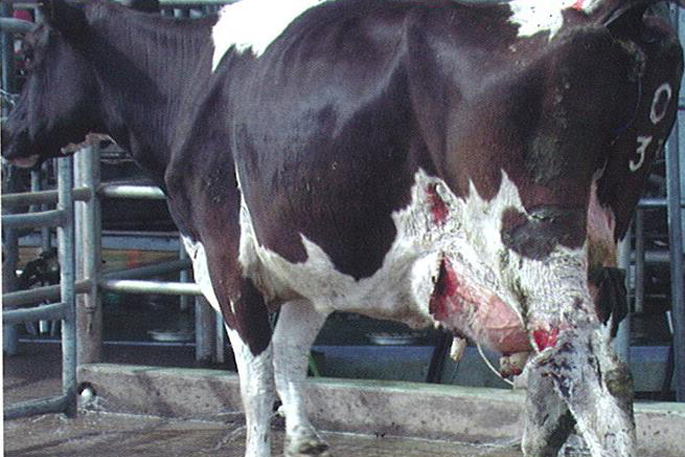 |
Vet's vision with Phil Rennie Tauranga Vets |
Heading: The threat of facial eczema outbreaks
Clinical cases of facial eczema are now on the horizon here in the Bay of Plenty. With the onset of summer, and sporadic bouts of rain or humid weather, the challenge will rise. Livestock owners are encouraged to monitoring spore counts closely as part of facial eczema prevention on their properties.
Signs to look for include a reduction in growth or drop in milk production in grazing livestock; animals that are restless, seeking shade and stock that rub their faces/lick their udders; and exposed unpigmented or thin skin that reddens, thickens and peels.
Not all affected animals will show signs. For one clinical case there are likely to be 10 animals with subclinical liver damage. These animals will have reduced production – growth or milk. Chronic wasting or death can occur from a badly damaged liver, especially under times of stress.
The fungus Pithomyces chartarum produces spores containing the toxin sporidesmin when grass minimum temperatures are above 12 degrees Celsius for two or three nights and humidity is high. This combination can last from December-January right through to May. Animals need to be treated two weeks prior to the rise in spore counts to have adequate protection. Avoid hard grazing and topping pasture during these times.
Where showers occur through autumn, spore counts could stay high with mild temperatures. All farms should be on high alert, monitoring spore counts closely and carrying out their own on-farm assessment of the risk.
Oral Zinc oxide prevention, preferably through slow release boluses, offers best performance. In-line Zinc sulphate water systems is the other main prevention alternative for stock.
There is no specific treatment for facial eczema and any therapy considered should be symptomatic and palliative. Antihistamines, anti-inflammatories, vitamins and zinc-based creams for skin lesions are commonly given.
For more information on facial eczema in your area, contact your local vet clinic for advice and treatment options.



0 Comments
Leave a Comment